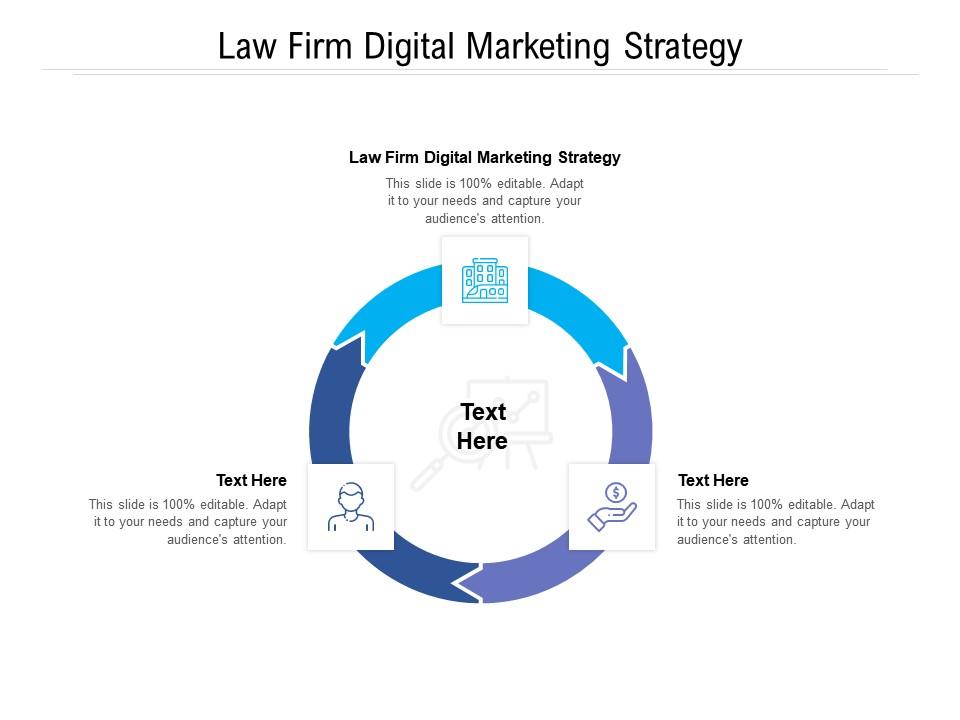Marketing Strategies for Law Firms in 2023 takes center stage as the legal landscape undergoes a digital transformation. Gone are the days of relying solely on word-of-mouth referrals and traditional advertising. Today’s legal clients are savvy, tech-savvy, and demanding, demanding a seamless online experience and personalized service.
Law firms that fail to adapt to these changing dynamics risk being left behind.
This comprehensive guide delves into the essential marketing strategies that law firms need to embrace in 2023 to thrive in this competitive environment. From understanding the modern legal client and harnessing the power of digital marketing to building a strong online reputation and optimizing marketing efforts, this guide provides actionable insights and practical tips to help law firms attract new clients, strengthen their brand, and achieve sustainable growth.
Understanding the Modern Legal Client

The legal landscape is rapidly evolving, and law firms must adapt their marketing strategies to reach and engage a new generation of clients. Today’s legal clients are digitally savvy, value transparency, and demand personalized experiences. Understanding their unique characteristics and expectations is crucial for law firms to succeed in this competitive environment.
Client Characteristics and Expectations
The modern legal client is characterized by their tech-savviness, preference for transparency, and desire for personalized service. These clients are accustomed to researching and comparing options online, often turning to digital platforms for information and advice. They expect quick responses, clear communication, and a seamless digital experience.
- Digital Savvy:Today’s legal clients are comfortable navigating the internet and utilizing online resources. They research potential legal counsel online, read reviews, and often prefer to communicate through email or online platforms.
- Transparency and Value:Modern clients are increasingly demanding transparency from legal professionals. They want clear explanations of legal fees, a breakdown of services, and a sense of value for their investment.
- Personalized Experiences:Clients expect tailored solutions and personalized communication. They want legal professionals to understand their unique needs and provide advice that is relevant to their specific situation.
Online Presence and Engagement
Modern legal clients are most active online through a variety of channels and platforms. Law firms must understand where their target audience is spending their time and tailor their online presence accordingly.
Law firms are increasingly turning to digital marketing strategies to reach potential clients, and a key aspect of this is building trust and credibility. One way to showcase expertise is by offering valuable resources, such as a comprehensive guide like Get a USAA Insurance Quote: A Comprehensive Guide , which demonstrates an understanding of relevant legal issues and provides practical advice.
By providing such resources, firms can position themselves as thought leaders and attract clients seeking reliable legal counsel.
- Search Engines:Google remains the primary source of information for most online users. Law firms must optimize their websites for relevant s to appear in search results for potential clients seeking legal services.
- Social Media:Platforms like LinkedIn, Facebook, and Twitter provide opportunities for law firms to build brand awareness, connect with potential clients, and share valuable legal content.
- Legal Directories and Review Sites:Online directories like Avvo and Martindale-Hubbell allow clients to research legal professionals and read reviews. Law firms should ensure their profiles are up-to-date and accurate.
- Legal Blogs and Websites:Creating informative and engaging content on legal blogs and websites can help law firms establish themselves as thought leaders and attract potential clients.
Digital Marketing Essentials
In today’s digital landscape, law firms must embrace a comprehensive digital marketing strategy to attract and retain clients. This involves leveraging various online channels to reach potential clients, build brand awareness, and generate leads.
Essential Digital Marketing Channels for Law Firms
A robust digital marketing strategy for law firms should encompass a diverse range of channels, each catering to specific client segments and objectives.
- Search Engine Optimization (): involves optimizing a law firm’s website and content to rank higher in search engine results pages (SERPs). This is crucial for attracting organic traffic from potential clients searching for legal services online.
- Pay-Per-Click (PPC) Advertising:PPC advertising allows law firms to display targeted ads on search engines like Google and Bing.
These ads appear alongside organic search results, enabling firms to reach specific audiences based on s and demographics.
- Social Media Marketing:Social media platforms like LinkedIn, Facebook, and Twitter provide valuable avenues for law firms to engage with potential clients, share legal insights, and build brand awareness.
- Content Marketing:Content marketing involves creating and distributing valuable, relevant, and consistent content to attract and engage a specific target audience. This can include blog posts, articles, infographics, videos, and webinars.
- Email Marketing:Email marketing remains a powerful tool for nurturing leads, sharing updates, and promoting legal services.
Firms can segment their email lists to deliver personalized content to different client segments.
- Website Optimization:A well-designed and user-friendly website is essential for attracting and converting potential clients. This includes optimizing website speed, mobile responsiveness, and clear calls to action.
- Online Reviews and Reputation Management:Managing online reviews and reputation is crucial for building trust and credibility.
Firms should encourage positive reviews and address negative feedback promptly.
Tailoring Digital Marketing Channels to Specific Practice Areas
The effectiveness of different digital marketing channels can vary depending on the specific legal practice area.
- Personal Injury Law:PPC advertising, social media marketing, and content marketing are particularly effective for reaching potential clients seeking legal representation for personal injuries. Firms can target ads based on s related to specific injury types, such as car accidents, slip and falls, or medical malpractice.
Law firms are increasingly turning to digital marketing strategies to reach potential clients, and one key aspect is understanding the needs of specific demographics. For example, homeowners in Rhode Island may be interested in learning about their insurance options, which is where a resource like Rhode Island Home Insurance Quotes: A Guide for Homeowners can be valuable.
By leveraging such resources, law firms can demonstrate expertise in areas relevant to their target audience, ultimately building trust and attracting new clients.
- Family Law:Content marketing, social media marketing, and email marketing can be used to educate potential clients about family law issues, such as divorce, child custody, and adoption.
- Business Law:, PPC advertising, and content marketing are essential for reaching businesses seeking legal advice on matters such as contracts, intellectual property, and corporate governance.
Firms can target specific industries and business sizes through research and ad targeting.
Sample Content Calendar for a Law Firm Website
A content calendar helps law firms plan and schedule content creation and distribution. This ensures consistency and provides a framework for delivering valuable content to their target audience.
| Date | Topic | Channel |
|---|---|---|
| January 10 | Top 5 Tips for Hiring a Personal Injury Lawyer | Blog post, Social media |
| January 17 | Understanding the Divorce Process in [State] | Blog post, Email marketing |
| January 24 | Protecting Your Business’s Intellectual Property | Blog post, LinkedIn |
| January 31 | Common Mistakes to Avoid in a Contract Negotiation | Webinar, Email marketing |
| February 7 | Q&A: Your Questions about Estate Planning Answered | Blog post, Facebook |
| February 14 | The Importance of a Strong Will | Blog post, Email marketing |
Content Marketing Strategies: Marketing Strategies For Law Firms In 2023

In today’s digital landscape, law firms need to go beyond traditional marketing tactics to reach potential clients. Content marketing offers a powerful way to establish thought leadership, build trust, and attract new business. By creating and sharing valuable, relevant, and consistent content, law firms can position themselves as experts in their fields and connect with audiences seeking legal solutions.
Developing a Content Strategy
A well-defined content strategy is essential for success. It should Artikel the firm’s content goals, target audience, preferred formats, and distribution channels.
- Define Content Goals:Clearly define what the firm hopes to achieve through content marketing. Is the goal to increase brand awareness, generate leads, or educate potential clients?
- Identify Target Audience:Understand the demographics, interests, and pain points of the firm’s ideal clients. This information will inform the content topics and formats that resonate most.
- Choose Content Formats:Law firms can leverage a variety of content formats to engage different audiences. Consider blog posts, infographics, videos, podcasts, case studies, ebooks, and webinars.
- Establish Distribution Channels:Determine where the content will be shared. Options include the firm’s website, social media platforms, email marketing, and industry publications.
Compelling Content Topics
The most effective content addresses the needs and concerns of potential clients. Here are some examples of compelling content topics for law firms:
- Legal Updates and Trends:Provide insights into recent legal developments and their implications for various industries.
- Case Studies and Success Stories:Share real-world examples of how the firm has helped clients achieve successful outcomes.
- Client FAQs and Guides:Answer common legal questions and provide practical advice on navigating legal issues.
- Industry-Specific Insights:Offer expert perspectives on legal matters relevant to specific industries.
- Tips for Avoiding Legal Problems:Provide proactive advice on how to prevent legal issues from arising.
Optimizing Content for Search Engines and Social Media
To maximize the reach and impact of content, it’s crucial to optimize it for search engines and social media.
- Search Engine Optimization ():Use relevant s, optimize page titles and meta descriptions, and build backlinks to improve search engine rankings.
- Social Media Optimization:Create engaging content, use relevant hashtags, and promote content across social media platforms.
- Content Promotion:Leverage email marketing, social media ads, and paid promotion to reach a wider audience.
Building Online Reputation and Trust
In today’s digital age, potential clients often turn to the internet to research and select legal services. Building a strong online reputation is crucial for law firms to attract new clients and establish trust. Positive reviews and testimonials serve as social proof, influencing potential clients’ decisions and fostering confidence in the firm’s capabilities.
Law firms are increasingly turning to digital marketing strategies to reach potential clients, with targeted content marketing and social media engagement proving particularly effective. For example, a firm specializing in maritime law might leverage a guide like Boat Insurance Quote USAA: A Guide for Military Members to reach active and retired military personnel, a demographic known for its boating enthusiasm.
This approach allows firms to connect with niche audiences and build trust through valuable information.
The Importance of Online Reviews and Testimonials
Online reviews and testimonials play a significant role in shaping a law firm’s online reputation. They provide potential clients with valuable insights into the firm’s quality of service, professionalism, and client satisfaction. Positive reviews act as endorsements, demonstrating the firm’s expertise and trustworthiness.
They can increase website traffic, improve search engine rankings, and ultimately drive conversions.
Strategies for Encouraging Positive Reviews and Managing Negative Feedback
- Request Reviews from Satisfied Clients:Law firms should proactively ask satisfied clients to leave reviews on platforms like Google My Business, Yelp, and Avvo. A simple email or text message requesting a review can go a long way.
- Make it Easy to Leave Reviews:Provide clear instructions and links to review platforms on the firm’s website, email signatures, and social media profiles. Consider offering incentives for leaving reviews, such as discounts on future services.
- Respond to Reviews Promptly:Respond to both positive and negative reviews in a timely and professional manner. Thank clients for their positive feedback and address concerns raised in negative reviews.
- Monitor Reviews Regularly:Track reviews across multiple platforms and respond to any new reviews promptly. This helps maintain a positive online presence and address potential issues quickly.
Utilizing Social Media to Build Trust and Credibility
Social media platforms offer valuable opportunities for law firms to build trust and credibility with potential clients.
- Share Valuable Content:Create and share informative content related to legal topics that are relevant to the firm’s practice areas. This demonstrates expertise and positions the firm as a thought leader.
- Engage with Followers:Respond to comments and questions on social media posts, participate in relevant conversations, and foster a sense of community.
- Showcase Firm Culture:Share behind-the-scenes glimpses of the firm’s culture, highlighting its values, team spirit, and commitment to client satisfaction.
- Use Social Proof:Share positive client testimonials and reviews on social media to reinforce the firm’s reputation.
Measuring and Optimizing Marketing Efforts

In the dynamic landscape of legal marketing, it’s crucial to track and analyze campaign performance to ensure a return on investment. This involves identifying key metrics, utilizing data analysis tools, and making informed adjustments to optimize strategies.
Key Metrics for Tracking Marketing Campaign Success, Marketing Strategies for Law Firms in 2023
Tracking specific metrics provides insights into the effectiveness of marketing campaigns. These metrics can be grouped into website analytics, social media engagement, and lead generation.
- Website Analytics:Website traffic, bounce rate, time on site, conversion rate, and landing page performance are valuable indicators of user engagement and website effectiveness.
- Social Media Engagement:Metrics such as reach, impressions, engagement rate, click-through rate, and social media mentions provide insights into audience interaction and brand awareness.
- Lead Generation:Tracking the number of leads generated, lead conversion rate, cost per lead, and lead quality helps assess the effectiveness of lead generation efforts.
Analyzing Website Traffic and Social Media Engagement
Tools and techniques are available to analyze website traffic and social media engagement.
- Google Analytics:A powerful tool for tracking website traffic, user behavior, and conversion rates. It provides detailed insights into audience demographics, geographic location, and website performance.
- Social Media Analytics:Platforms like Facebook Insights, Twitter Analytics, and Instagram Insights provide data on audience demographics, engagement, reach, and post performance.
- Heatmaps:These visual representations highlight areas of a webpage that receive the most user attention, identifying areas for improvement.
- A/B Testing:This technique involves testing different versions of website pages or marketing materials to determine which performs better, optimizing for user engagement and conversion rates.
Making Data-Driven Adjustments
Analyzing data from marketing campaigns allows for informed adjustments to improve effectiveness.
- Identify Trends:Analyze data to identify patterns and trends in user behavior, campaign performance, and audience preferences.
- Optimize Content:Adjust content based on audience engagement and website analytics, focusing on topics that resonate with target audiences.
- Refine Targeting:Adjust marketing strategies to target specific audience segments based on demographics, interests, and online behavior.
- Experiment with New Channels:Explore new marketing channels, such as video marketing or influencer marketing, to reach new audiences and test their effectiveness.
Closing Notes
In conclusion, navigating the complex world of legal marketing in 2023 requires a multifaceted approach that combines strategic planning, innovative execution, and a deep understanding of the modern legal client. By embracing the digital marketing essentials, leveraging compelling content, building a strong online reputation, and constantly measuring and optimizing their efforts, law firms can effectively reach their target audience, cultivate lasting relationships, and position themselves for success in the years to come.



